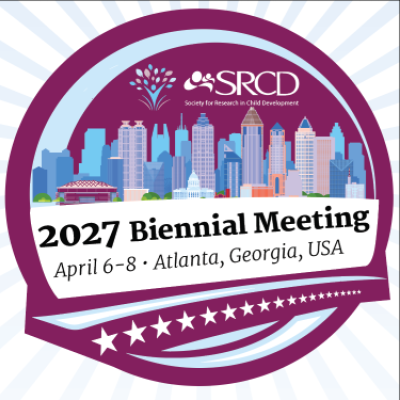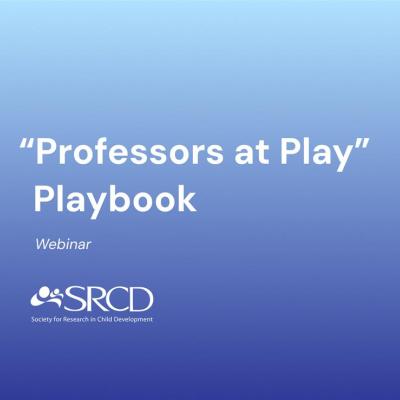Positive Youth Development (PYD) in the Context of the Global Recession
A 2014 SRCD Special Topic Meeting
Youth have been particularly hard hit by the global economic recession. Many young people are trapped in endless cycles of unemployment, underemployment and/or of being forced back to education because of lack of job opportunities. Alarmingly increasing numbers of skilled young graduates decide to migrate for a better future to wealthier countries. The “brain drain” of less wealthy societies is one of the deep wounds of the current crisis. However, the economic crisis may also have long-lasting and pervasive consequences on youth’s adaptation and development. It thwarts the aspirations and goals for the future of young people, and presents serious obstacles in their professional and personal adaptation. In Europe the current cohort of young people is actually referred to as “the lost generation”. What are the effects of the economic downturn for youth’s adaptation and development? What makes a difference for those who are able to more successfully navigate through this situation? How can we support youth to become the engines of hope and change in their countries? What can scientists from different countries learn from each other? More specifically, the goals of this conference are a) to examine the effects of the recession on youth’s current and long term positive adaptation, and to identify processes that may help youth adapt well and even transform this situation into an opportunity, b) to present different approaches and interventions that promote the personal and social assets, which will allow them to move successfully from adolescence into adulthood and to become competent adults, and c) present methods to study PYD in this context and methods to intervene to empower young people to adapt, as well as existing databases that can shed light on these questions.
This special topic meeting will be capped at approximately 230 attendees.
Follow us on Facebook for meeting updates!
- Download the Program Guide
- Download the Program Agenda
- Download the Mission Statement
- Registration and Housing
- Explore the Invited Program
- ERU-EADP/SECC Lunch Sessions
- Travel Awards
Registration and Housing
Registration fee includes lunch and coffee breaks each day of the meeting, as well as receptions in the evening.
Printable Registration Form (check payments only)
| Registration Type | Registration Rate ($USD) |
| All SRCD Members other than Students | $500.00 |
| All Nonmembers other than Students | $700.00 |
| SRCD Student Member | $250.00 |
| Student Nonmember | $350.00 |
Stay in the Corinthia Hotel at discounted rates:
Book your room [here] for special discounted rates! These rates are discounted for SRCD attendees, so be sure to book your room now!
Attendees who stay in the Corinthia Hotel (SRCD's conference hotel) will also receive breakfast and free internet.
Dear Colleagues,
This is a quick plea both for your convenience and for the good of our community!
Please book at the Corinthia Hotel. Staying there not only enhances your convenience and chances to network, it also enables us to reach our contracted room-booking requirements. SRCD’s meeting expenses (and of course, ultimately, attendees’ registration fees) would be astronomical if we could not negotiate rates linked to hotel use. Financial penalties increase with each registrant who stays outside an officially contracted SRCD hotel.
Thanks for taking our collective good into account as you make your plans. We look forward to seeing you in Prague!
Lynn S. Liben, SRCD President
Invited Program
SRCD is excited to share information about distinguished scholars who have been invited to speak in Plenary Sessions:
- Rainer Silbereisen (University of Jena, Germany) will speak in a plenary of positive youth development and adaptation in the context of social change while Hirokazu Yoshikawa (Harvard Graduate School of Education, USA) will model how the economic crisis affects development.
- Marlis Buchmann (University of Zürich, Switzerland) will address the economic downturn and transition to adulthood by comparing different types of welfare regimes in Europe. This plenary will also include Chiara Monfardini (University of Bologna, Italy) looking at economic models for understanding youth behavior as well as Ingrid Schoon (University of London, United Kingdom) speaking on the effects of social change on future goals.
- A plenary including Jeanne Brooks-Gunn (Columbia University, USA), Çigdem Kagitcibasi (Koç University, Turkey) and Suman Verma (Panjab University, India) will cover interventions to support and promote positive adaptation and development in the context of economic constraints. This part of the program will also include the promotive/protective factors for PYD at the policy, social, and individual levels, welfare-system, family, school, extra-curricular activities and spirituality.
- Mark Stemmler, (University of Erlangen-Nuremberg) and Manuel Völkle, (Max Planck Institute for Human Development, Germany) will lead the session that will analyze longitudinal change among cohorts of youth.
- Additional plenary sessions will include Radosveta Dimitrova (Stockholm University, Sweden) and Christiane Spiel (University of Vienna, Austria) presenting summaries of where we have come on Research, Intervention and Policy and what is needed for the future.
In addition two invited symposia sessions will be presented:
1. The Economic Crisis and Adolescent Developmental Tasks: The European Perspective
Chairs: Frosso Motti, University of Athens and Katariina Salmela-Aro, University of Helsinki
Discussant: Rainer Silbereisen, University of Jena
- Job Opportunities and Young People’s Labor Market Entry: Before and During the Economic Crisis
Marlis Buchmann; Stephanie Bundel - Young People and the Great Recession in the UK: Impacts on Achievement related Attitudes and Behaviours
Ingrid Schoon; Mark Lyons-Amos - Young People and the Great Recession in Finland: Cynical Generation?
Katariina Salmela-Aro; Kirsti Lonka; Kai Hakkarainen; Kimmo Alho; Heta Tuominen-Soini - Changes in the Adaptation and Well-being of Immigrant and Host-national Adolescents during the Greek Economic Crisis
Frosso Motti; Jens B. Asendorpf
2. Cross-cultural Exemplars of Individual and Ecological Developmental Assets Associated with Positive Youth Development
Chair: Suman Verma, Panjab University
Discussant: Ingrid Schoon, University of London
- Sensory-Processing Sensitivity Predicts Treatment Response to a School-Based Depression Prevention Program: Evidence of Vantage Sensitivity
Michael Pluess; Ilona Boniwell - Protective Factors in the Development of Delinquency and Criminality for Adolescents from Families Suffering from Economic Hardship
Zara Sünkel; Mark Stemmler - Juventude em Cena (Youth in Scene): Vulnerable Youth in Brazil as Protagonists
Silvia H. Koller; Ana Lazzaretti de Souza; Emily Haddad - Positive Youth Development: A Strengths-Based Approach to Reduce the Risk of Psychological and Educational Problems
Susana Marques; Shane J. Lopez; Anne Fontaine; Susana Coimbra
Click here for more information: PYD Invited Program Overview
ERU-EADP/SECC Lunch Sessions
The ERU (Early Researchers Union) at EADP (European Association of Developmental Psychology) and SECC (Student and Early Career Council at the SRCD) are collaborating on the planning of special lunchtime sessions which will give students and early career scholars the opportunity to network with senior scholars in the field. Students and early career attendees will be contacted before the meeting in order to sign up for these events.
Travel Awards
Once again, the Jacobs Foundation has generously provided a grant to support international travel. The link to the application site for a travel award was included with decision notifications. The deadline to apply is July 30, 2014, 5:00pm EDT. Please see below for the applicant qualifications.
Jacobs Foundation International Travel Awards Qualifications:
- Applicants must be current and ongoing Emerging Nations International members of SRCD. They must also be either a graduate student (have not received a doctoral degree) or early career professional (received their doctoral degree after 1/1/09). Having more than one year of membership will be given favorable consideration.
- Applicants must be presenting as a first author on at least one accepted submission. High review ratings for a submission count positively.
- Applicants must be a citizen of and reside in a developing country as defined by the World Bank criteria for low-income, lower-middle-income and upper-middle-income economies.
- Recipients of this award receive complimentary meeting registration.
- A $1,000 award will be given to approximately 10 awardees.


